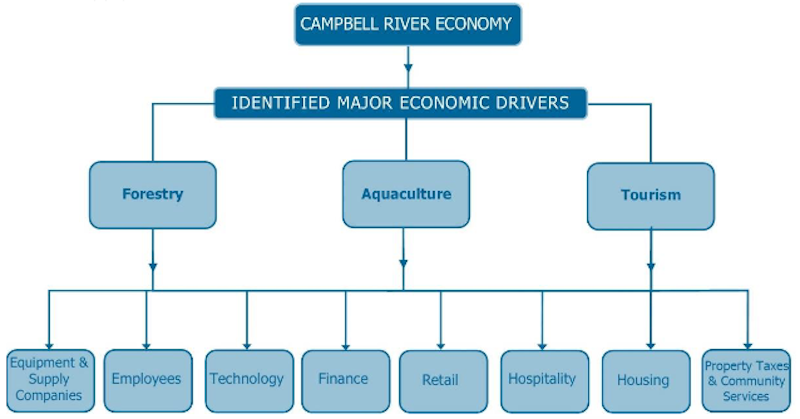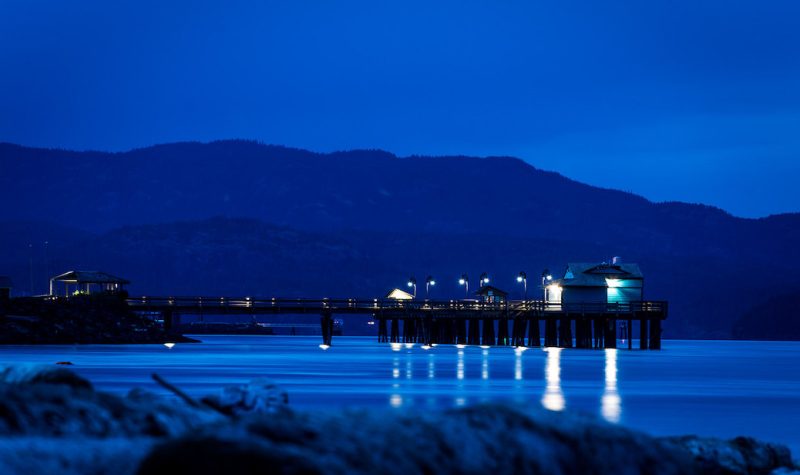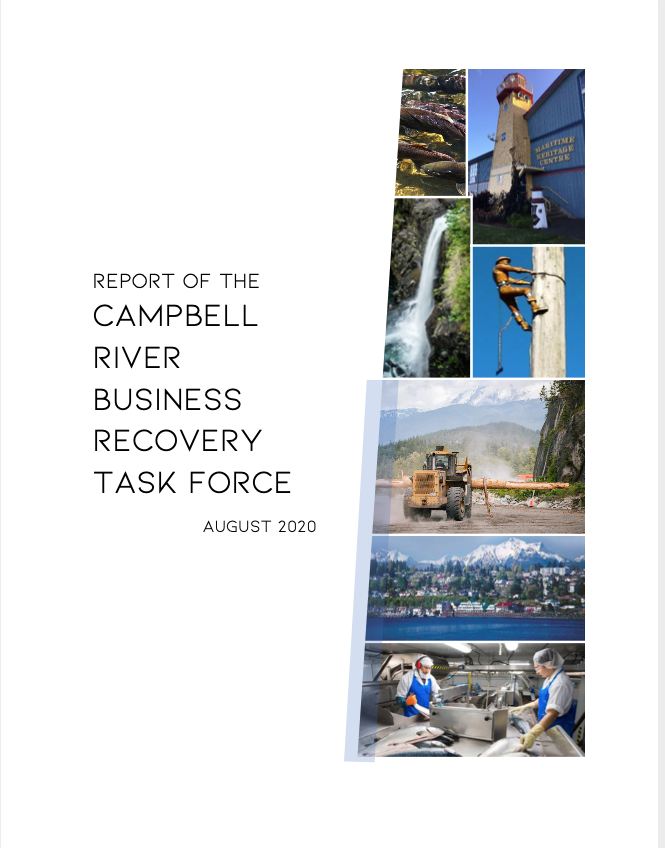By Roy L Hales
When Campbell River was reeling from the onset of COVID last Spring, a volunteer task force was formed to study the economic impacts. They received responses from about 300 businesses, 30 of which were interviewed over a two and a half month period. The Campbell River Business Recovery Task Force concluded that the city’s economy primarily rests on three pillars: tourism, forestry and fish farms.
This is where the first dollars enter, that support numerous other businesses.
Now the Task Force warns about the economic consequences of phasing out fish farms.
'Wake up Campbell River'
In a news release called ‘Wake Up Campbell River,’ they state:
“Whether you agree or disagree with the decision of the Department of Fisheries and Oceans, it is important, we think, that each member of the community is fully informed about what this industry contributes directly and indirectly in cash input to Campbell River and how the other local business are connected to the salmon farming industry and what may be lost if this industry either fully or partially retreats from the current scope of its business.”
” … The fish farming industry has, unlike many other businesses, been virtually unaffected by the pandemic and has continued production at near normal levels and has been deemed “essential” during the COVID-19 pandemic. In the past, many of the job losses associated with the closure of the Elk Falls Mill, were absorbed at the time by an expanding aquaculture industry. We don’t see such a fall-back position being available to those workers who will lose their jobs as a result of the closure of the Discovery Islands salmon farms.”
Campbell River’s three pillars
“If you look at the interrelationships, you can see that so many things that we enjoy in this community, and on your own island (Cortes) to some extent, are a product of a successful forest industry, aquaculture industry, and, when it’s able to, the contribution made by tourism and hospitality,” said Task Force Co-Chair Brian Stamp.

from the Report of the Campbell River Business Recovery Task Force
Tourism
“It is important to recognize that both forestry and aquaculture have largely been spared the devastation from the COVID pandemic that has been heaped upon the tourism sector, including facilities and businesses operated by First Nations. At the time of this report, the expectation is that this sector will not recover to what was “normal” for between 3 and 5 years. The initiative to “visit our own province” being promoted by the Province has produced some positive short term results but is not expected to sustain the industry over the long term.” – Report of the Campbell River Business Recovery Task Force
Forestry
“The forestry sector is more diverse. We never did get a clear picture because there are probably 20 contract logging companies in town, so we just settled on four, ”explained Stamp.
They also worked with a license holder, who has remained anonymous.
“In aggregate: these four companies and the individual licence holder employ some 500 persons, pay annually an estimated $47 million in wages and benefits to employees who reside in Campbell River. These same companies purchase conservatively some $77 million in supplies and services from vendors located in Campbell River,” said Stamp.
He added, “After we published the report, the BC Council of Forest Industries published its own report called the 2019 Regional Supply Chain Study. The report concluded that the supply chain purchases from Campbell River suppliers amounted to $253 million in 2019.”
Fish farms
“We had a very clear message from the aquaculture business because they are all tied together with the BC Salmon Farmers Association,” said Stamp.
He cited statistics from the BC Salmon Farmer’s Association report, Raising Opportunity: How BC Salmon could lead BC’s Post COVID Recovery where it says there 572 people from Campbell River, Sayward and the Discovery Islands employed in salmon farm operations. They receive $31 million in wages and another $132.6 million goes out to local venders.
“If you take the supply chain numbers from the aquaculture industry and forestry industry and add them up, that’s a significant amount of money. Then, if we are lucky enough to get the tourism component back on its feet, then you have the three pillars firing on all cylinders,” said Stamp.
Stores and Services
“The retail opportunities that we have in Campbell River, the big box stores – the Walmarts, Home Depots, Home Hardware, Save on Foods, those large retail operations – are a product of Campbell River having a resilient economy. If all of a sudden the traffic in Home Depot was to suffer because the numbers of people shopping there are reduced, because their incomes are reduced, or the numbers of people available to shop are reduced because they haven’t got a job and they’ve moved on – guess what. If that store isn’t producing the results that they expect, it will close,” said Stamp.
“That goes for all the other things that we enjoy here and the residents of Quadra and Cortes Islands enjoy some of the same benefits. We have a very wonderful array of physicians, and surgeons in Campbell River. We have a new hospital in Campbell River. Those are all products of having a group of citizens that have the where withal because they have jobs and are well paid to live here.”
Importance of the three economic pillars
Stamp concluded, “You can see small communities that are not successful. They struggle to keep doctors in their communities. So we are fortunate that these industries [tourism, forestry and fish farms] have provided us with a very nice way of life."
This article was published January 25th, with additional information and edits to the first paragraph on Jan 26th, 2021.



